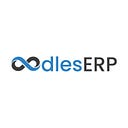Odoo SaaS Kit: Features and Server Specifications
A third-party supplier hosts applications and grants customers online access with the Odoo SaaS model of software delivery. PayPal payments are accepted by the well-proven and tested site administration tool Odoo SaaS package. It features a framework for building membership-based applications that includes multi-tenant data security in a single database, account upgrades, and tiered price levels. Let’s examine the superior capabilities and advantages of adopting the Odoo SaaS kit.
Applications of SaaS
Along with platform as a service (PaaS) and infrastructure as a service (IaaS), SaaS is one of the three primary types of cloud computing. SaaS’s hosted application concept is comparable to the ASP’s (Application Service Provider) business model. Businesses no longer need to install and maintain software on their desktops or data centres thanks to SaaS. It does away with the cost of purchasing hardware and paying for software licences, provisioning, and upkeep. IT specialists and C-level executives across sectors employ SaaS apps. For essential business technology, there are several SaaS apps available, including:
* Sales Management
* Customer Relationship Management (CRM)
* Point of Sale (POS)
* Human Resource Management (HRM)
* Financial Management
* Billing and Collaboration
Benefits of Odoo SaaS Kit
* To cut costs associated with site management, Odoo SaaS minimises the need for physical server configuration.
* The Odoo SaaS kit gives companies a ready-to-use framework so they may launch their own Odoo SaaS services.
* The scalability of Odoo SaaS enables users to access functionalities as needed.
* With internet-capable devices, users can access Odoo SaaS applications with ease.
Customers have access to a variety of customization possibilities with Odoo SaaS. Numerous intrinsic modules are available to them as a time-based service without the requirement to purchase a proprietary licence.
Also, Read Odoo Community vs Odoo Enterprise: Making The Right Choice
Features of Odoo SaaS Kit
Odoo Instance:
* For each customer, an individual Odoo SaaS instance is established.
* The user has two options: manually build the instance or schedule the creation of instances for each order.
* All modules included in the customer’s bought plan and installed in the instance are included in the Odoo instance that is made available to them.
* The customer’s registered email address receives an automatic message with the login information.
Odoo As a Service:
* The module enables users to offer instances of Odoo as SaaS to their clients.
* It gives users a framework for the subscription-based service model.
* Users are able to provide their clients subscription-based services for Odoo and its modules while using Odoo instances.
Customer Website Account View:
* Customers can access the specifics of their subscription agreement in their website account.
* The account information also shows the modules that are a part of the subscription plan.
* Customers can access their Odoo SaaS instance straight from the online account and check the status of their plan.
Subscription Plans:
Different subscription plans with featured modules can be created and published on the website for customers
* Customers need to purchase the plan to start the subscription
* Users can also include a trial period within the plan
Other Basic and Advanced Features of Odoo SaaS:
* Compatible with the Community and Enterprise Editions of Odoo
* Capability to systematically monitor databases
* The capacity to alter the number of users for each database.
* Provide a password reset option for users.
* Accepted gateways include PayPal
* Sub-domain URLs that only list a single database, preventing users from viewing other databases
* SSL with a digital certificate support
* The administrator is given a unique URL for building databases.
* The ability to automatically issue bills each month
* Support for sub-domains when purchasing domains for individual customers
Also, Read Odoo ERP Implementation For The F&B Industry
Ideal Requirements of Odoo SaaS as a Service Implementation
We at Oodles ERP have a proven track record of meeting challenging business demands. The following framework and tools are suggested by our core development team for use in implementing Odoo SaaS.
Technology Stack: * Odoo (V11): Odoo is an all-in-one management tool that offers a selection of commercial apps aimed at businesses of all sizes.
* PostgreSQL (V9.x): This database system is utilised as the main or permanent database. We choose PostgreSQL at Oodles because it provides both NoSQL database features and all SQL database features, such as constraints, triggers, stored procedures, and ACID behaviour.
* Nginx is a web server that functions as a load balancer, reverse proxy, mail proxy, and HTTP cache.
* Django: This open-source, high-level Python web framework enables the quick creation of practical design in the Odoo context.
Development Tools:
* Jira: This project management tool is utilised by the development team. The project’s deliverables can be readily maintained and tracked by developers.
* PyCharm: This IDE is useful in programming, particularly for customising Odoo modules and the Python language.
* GitHub: Developers can track changes during development and version their code there.
Grow Your Business Potential with Our Odoo SaaS Services
With the help of our specialised Odoo development services, you can streamline your business operations and boost operational effectiveness. Increase the scalability and flexibility of your business processes by selecting from our robust stack of 10,000+ Odoo enabled applications.
If you intend to integrate Odoo with your cloud-based applications, get in touch with Oodles ERP right away to set up a meeting.
To Read Next: Odoo Version 13 Roadmap and Updated Features: A Sneak Peek
